Are Women Affected Differently by IBS?
As a gut health dietitian, in my clinical practice I typically see more women than men with irritable bowel syndrome (IBS) and other gut issues. In speaking with other dietitians and reviewing the research, it is clear that there are indeed very real differences in terms of how and how often IBS affects women.
In this article, we will explore this topic in more detail. We will also discuss how these gender differences in IBS may affect treatment strategies and outcomes.

Increased Prevalence of IBS in Women
IBS is a common gastrointestinal condition, affecting anywhere from 8 to 20% of the US population and around 11% globally. However, more women than men suffer from IBS: 14-24% of US women versus 5-19% of US men. Notably, some studies indicate an even greater prevalence of IBS in women versus men of nearly 3:1.
In addition to the numbers affected, the type of IBS also differs between men and women. Women tend to be diagnosed more often with post-infectious IBS (PI-IBS) or constipation-predominant IBS (IBS-C), while men tend to be diagnosed more frequently with diarrhea-predominant IBS (IBS-D). In general, most functional gastrointestinal disorders (FGID), including IBS, functional diarrhea, functional constipation, functional dyspepsia and others, show a predominance in females. Women also often have more than one FGID.
IBS Symptoms & Co-occurring Conditions
IBS is most commonly experienced during a woman’s menstruation years (between her teens to mid-forties). In addition to overlapping gut disorders, women with IBS may have several gynecological disorders, including endometriosis, dysmenorrhea, pelvic floor myalgia, chronic cyclic pelvic pain, or polycystic ovary syndrome.
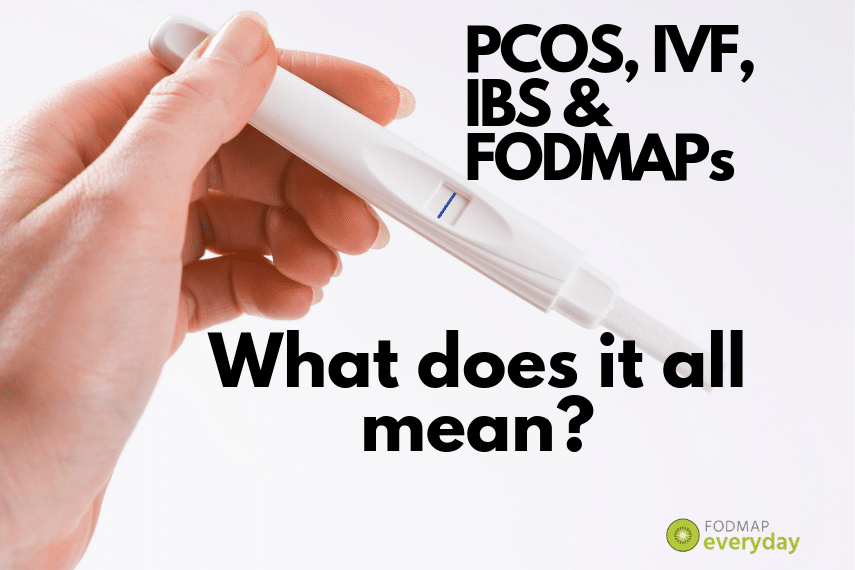
For more info read: PCOS, IVF, IBS & FODMAPs
In fact, studies have shown that 50% of women seeing a gynecologist for lower abdominal pain have IBS. Women with IBS are also more likely than women with other bowel symptoms to be diagnosed with endometriosis. And women with IBS are three times more likely to receive a hysterectomy than women without IBS.
These co-occurring conditions lead to a unique constellation of symptoms experienced by women, such as intense abdominal pain, excessive bloating, and loose stools around the time of their menstrual period. Women also show slower gastric emptying rates of both solids and liquids, and they are twice as likely as men to report generalized bloating or abdominal distention as men.
Finally, women experience more chronic pain disorders that may co-occur with IBS, such as fibromyalgia, chronic fatigue syndrome and migraine headache. Women also tend to feel more fatigue, depression and anxiety, and experience lower quality of life than male IBS patients. These are real and true issues, and are not often recognized by healthcare professionals, friends, and family members of the female IBS sufferer.
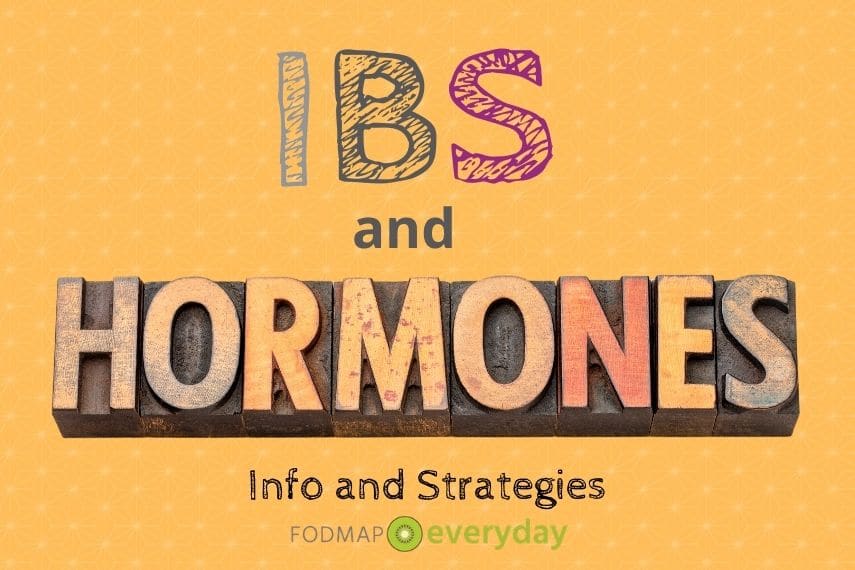
You may want to read: IBS & Hormones – Info and Strategies
Why Do Gender Differences in IBS Symptoms & Prevalence Occur?
It’s been known for some time that there are gender differences in terms of how IBS develops and affects individuals, however, the pathophysiology for these differences remains somewhat murky. Clearly, sex hormones play an important role, though it’s unclear whether these hormones are primary or secondary mediators of symptoms, and what other mechanisms may be at play.
Hormonal Shifts
For example, we know that menstruation is associated with the exacerbation of IBS symptoms in the majority of women, while pregnancy appears to improve IBS symptoms for many women, demonstrating a connection between various hormonal shifts and improvement or worsening of gut sensitivity and/or symptoms. It’s also known that both estrogen and progesterone affect gastrointestinal motility and colonic permeability.
However, oral estrogen and progesterone supplements do not seem to have any effect on IBS symptom levels, nor do irregular menses, hysterectomy or tubal ligation. Therefore, it appears that hormonal shifts are not alone in exerting an effect on IBS gender differences.
Brain Function
Other possible theories include differences between the genders in brain activation patterns, dysregulation of the hypothalamic– pituitary–adrenal axis, immune dysfunction, visceral hypersensitivity, behavioral stress responses, changes in the gut microbiome, autonomic nervous system dysregulation and/or genetic susceptibility.
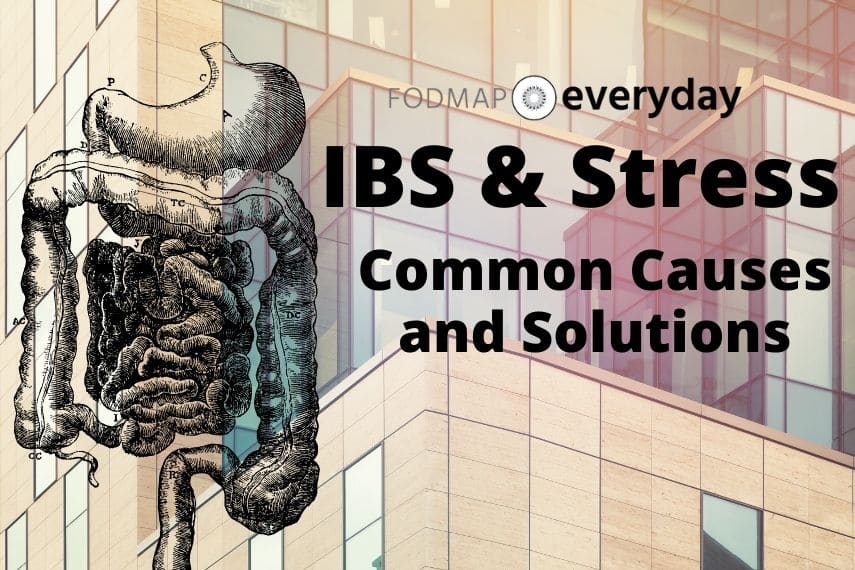
For more info read: IBS & Stress, Common Causes and Solutions
Response to Pain
For example, women may have different responses to pain and central nervous system (CNS) activation than men. Researchers at Penn State found that the nerve cells that control the movement of food through the intestines (e.g., motility) are more sluggish in response to brain inputs in women than in men. This indicates that the nerves controlling the intestines in women are less excitable and receive more inhibitory signals from the brain, creating another possible rationale for why gut symptoms are more common in women.
Stress Response
Stress and gender roles also may affect IBS symptoms in women to a greater extent than similar situations for men. For example, stress has a greater effect on decreasing upper GI motility and increasing lower GI motility in female versus males, and in general, men have shorter colonic transit times than women. These differences can certainly lead to greater feelings of discomfort, bloating or constipation in women versus men.
Societal Factors and Pressure
There are also strong gender and societal factors that may increase stress and exacerbate women’s IBS symptoms, due to the strong connection between the brain and gut. Women often experience a high amount of embarrassment or shame in discussing or experiencing symptoms of IBS or in losing control of bodily functions.
Women’s dual roles in the workforce and as the main caretaker at home also create added stress and fatigue, and societal standards, such as the drive for attractiveness or thinness can also make certain IBS symptoms, such as gas and bloating, more embarrassing or stressful for women.
Should Women Be Treated Differently for IBS Than Men?
While the research shows some very clear differences in IBS’s effects on women versus men, how these gender differences translate to treatment strategies remains unclear. Some pharmacological treatments have been shown to be more effective for women, such as the medication Alosetron, which is used to treat IBS-D, however there are very few studies that have evaluated the gender differences in terms of efficacy of IBS pharmacological treatments.
Some studies have indicated that behavioral therapies for IBS, such as cognitive behavioral therapy, hypnotherapy or meditation, may have more positive impacts on women than men, especially gut-directed hypnotherapy, however more research, specifically on women is needed.
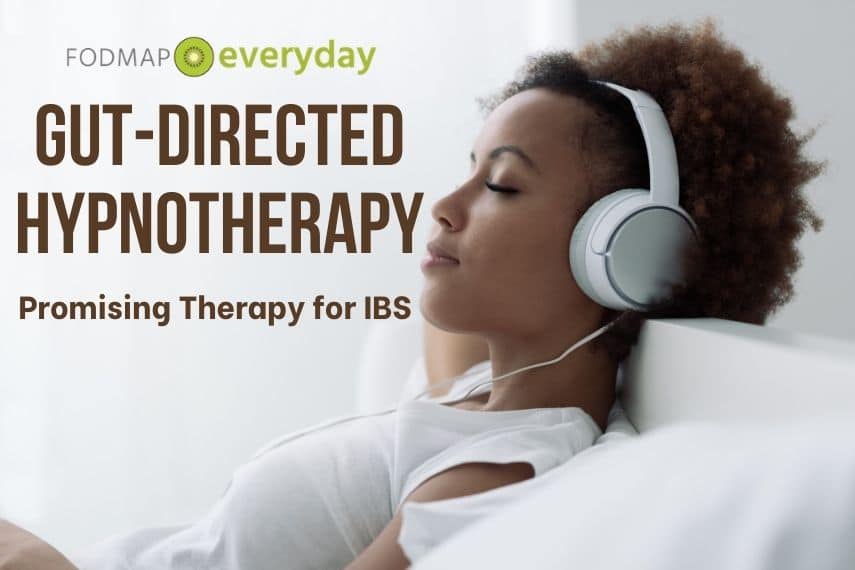
For more information: Gut-Directed Hypnotherapy, Promising Therapy for IBS
The Takeaway
Women tend to have very different IBS symptoms than men, and these, along with unique gender and societal roles, may lead to greater challenges experienced by women in managing their IBS over the long-term. Additional research is needed in order to better guide treatment strategies to meet the unique needs of women.
In the meantime, women, know that you are not alone! There are many tools available to you to manage your IBS, including the low FODMAP diet or other dietary strategies, gentle exercise, medications and supplements, meditation and more. Work with your healthcare team to develop the best treatment strategy for YOU.
Resources
- Women and Irritable Bowel Syndrome (2021). UNC Center for Functional GI & Motility Disorders. Retrieved 10 January 2021, from https://www.med.unc.edu/ibs/files/2017/10/IBS-in-Women.pdf
- Chatila, R., Merhi, M., Hariri, E. et al. Irritable bowel syndrome: prevalence, risk factors in an adult Lebanese population. BMC Gastroenterol 17, 137 (2017). https://doi.org/10.1186/s12876-017-0698-2
- Mearin F, Lacy BE, Chang L, Chey WD, Lembo AJ, Simren M, Spiller R. Bowel Disorders. Gastroenterology. 2016 Feb 18:S0016-5085(16)00222-5. doi: 10.1053/j.gastro.2016.02.031. Epub ahead of print. PMID: 27144627.
- Kim YS, Kim N. Sex-Gender Differences in Irritable Bowel Syndrome. J Neurogastroenterol Motil. 2018;24(4):544-558. doi:10.5056/jnm18082
- Houghton LA, Heitkemper M, Crowell M, et al. Age, gender and women’s health and the patient. Gastroenterology. 2016;150:1332–1343. e4. doi: 10.1053/j.gastro.2016.02.017.
- Why gastrointestinal disorders afflict women more often. (2021). Retrieved 10 January 2021, from https://www.sciencedaily.com/releases/2015/03/150330134409.htm
- Heitkemper, M., & Jarrett, M. (2008). Irritable bowel syndrome: Does gender matter?. Journal Of Psychosomatic Research, 64(6), 583-587. doi: 10.1016/j.jpsychores.2008.02.020
- Gonsalkorale WM, Miller V, Afzal A, et al. Long-term benefits of hypnotherapy for irritable bowel syndrome. Gut 2003;52:1623-1629

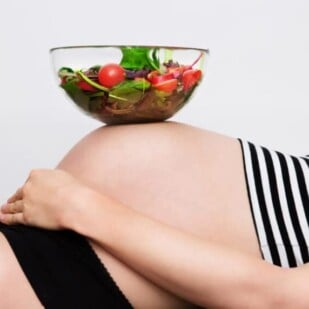






Some very useful lines of enquiry here which will be well worth further research. Unfortunately regarding your concluding paragraph I’m araid I feel very much alone in my struggles with IBS. My health care team, such as it is, is not interested in IBS and only in obvious easy to treat things like the chronic foot ulcers resulting from my long term Peripheral Neuropathy. The elimination FODMAP, gluten and dairy free diet I have been following for years(!) helps somewhat but I realise this is not sustainable. I have tried all sorts of supplements but have never been offered medication (apart from laxatives when things get sluggish) and, even if I was mobile, none of the dietitians in your list is anywhere near me here in Sydney (Australia) and my family would be very reluctant to go along with any further dietary restrictions. My apologies for the length of this rant and thanks for your great service, but I wanted to highlight areas which could use more attention. Regards one desperate and miserable disabled senior.
Patricia, we are here for you! I would say that you could absolutely look into working with a RD remotely; you really do not have to have one nearby. Diana Reid, who wrote the article, works remotely with clients. Please consider looking into this. You are not alone in feeling that your current medical team is not attending to your needs:(
I am a middle-aged woman who has had IBS-D since late adolescence. Gut-directed hypnotherapy and yoga do nothing for me. I’m in the beginning of menopause but my IBS-D is no better even though it used to get much worse near my period. I have been on a modified low-FODMAP diet for over two years which helps but is not a panacea nor is probiotics. Peppermint il gives me reflux even the enteric version
I got diagnosed with IBS going into my senior year of high school (now a college graduate). However, not knowing at the time, I did struggle a lot with anxiety and depression since I started middle school and only very recently was medically diagnosed with GAD and chronic depression. Plus being lactose intolerant since my freshman year of high school. Knowing that I had GAD and chronic depression before would have been helpful a lot XD. I ended up being put on meds for about 3-4 years, modified my diet, doing exercises like pilates, and taking probiotics when I can. Now I’m having little to no symptoms unless I’m really stressed out and find myself eating foods again I couldn’t eat when I first had IBS.
Max you are not alone in that the road to a better, pain-free place can be a winding road! So good to hear that you have worked out an approach that is helping you. I find that regular exercise helps me immensely as well – and sleep!